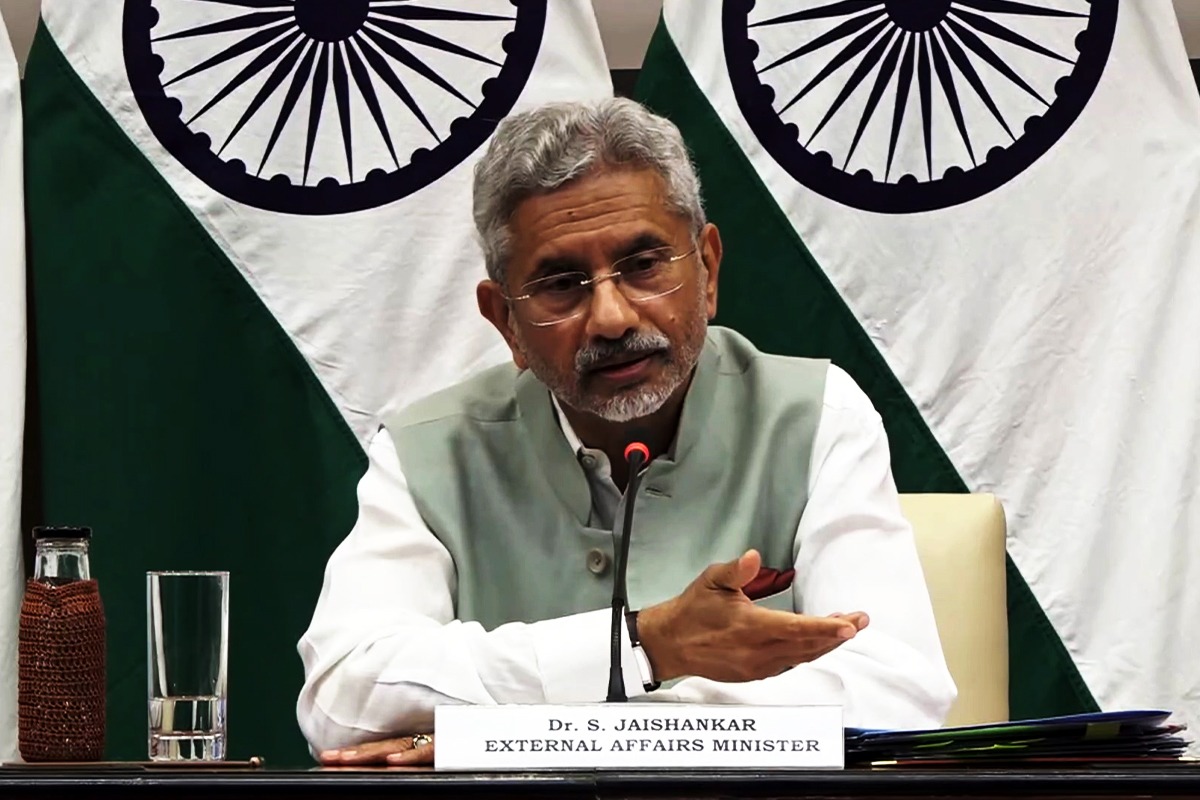NEW DELHI: India’s External Affairs Minister, Dr Subrahmanyam Jaishankar, shed light on the crucial nature of the abrogation of Article 370 in Jammu and Kashmir and how the world played against India, perceiving it as a point of vulnerability.
Speaking on Thursday, Jaishankar emphasised the long-awaited step taken in 2019, which he deemed vital for national security. “I think what was done in 2019 was a very, very crucial and long-awaited step with respect to national security. It’s a long story why Article 370 was kept beyond its shelf life,” Dr Jaishankar said.
Reflecting on the prolonged existence of Article 370, Jaishankar revealed that the international community used it as a tool to keep India off balance. He stated, “But the bottom line, giving you a diplomatic perspective, is that the whole world used it against us. They saw it as a point of vulnerability, something that they should keep pressing at to keep India off balance.”
“If we don’t get it right, how do you expect the world to get it right? For us, the thing was to remediate at home, and that’s what we did in 2019,” he added.
ALSO READ: No progress in relations until China…: Dr Jaishankar on border dispute
Dr Jaishankar emphasised the need for India to address the issue internally to counter the global opposition, and that is precisely what the nation did in 2019.
The External Affairs Minister further highlighted the positive shift in the world’s perception following the abrogation. He acknowledged that after sorting out the matter internally, the question of how the world would react arose.
The Indian Foreign Ministry and the minister himself engaged in strategic communication efforts to ensure global understanding of the situation.
ALSO READ: EAM Jaishankar slams Rahul Gandhi’s persistent attacks on India abroad
Jaishankar acknowledged the challenges faced in countering narratives and propaganda, some of which originated within India itself. However, he affirmed that, through their efforts, India successfully dispelled misconceptions and changed the international perception of the issue.
Jaishankar pointed out that if one were to ask people around the world about their concerns regarding India today, the abrogation of Article 370 would no longer be seen as a live issue. He cited the example of the recent G20 meeting held in Jammu and Kashmir as evidence of the positive developments in the region.
The External Affairs Minister also expressed his desire for increased investment and foreign tourism in Jammu and Kashmir, emphasising that the region has the right to benefit from development and globalisation, just like any other part of India.
ALSO READ: India says Akhand Bharat map cultural, but vows to reclaim PoK
“I would like to see quite honestly more investment there, more foreign tourists there. I see no reason why Jammu and Kashmir should be denied the benefits not only of development but of globalisation that the rest of India is experiencing. It is their right and we should strongly promote that,” Dr Jaishankar said.
Despite objections from certain countries and threats, India successfully hosted the G20 meetings in Jammu and Kashmir. Prior to the event, Jaishankar firmly responded to his Pakistani counterpart, Bilawal Bhutto Zardari, who raised the issue of Article 370 during the Shanghai Cooperation Organisation (SCO) meeting in Goa.
ALSO READ: Indira Gandhi murder recreation at Canada Khalistan rally irks Indians
Jaishankar dismissed Zardari’s remarks, stating, “Article 370 is history. Wake up and smell the coffee. They have nothing to do with the G20, nothing to do with even Srinagar and Kashmir.” He further called upon Pakistan to address the issue of its illegally occupied territories in Jammu and Kashmir.
Regarding Pakistan-occupied Kashmir (PoK), Jaishankar reaffirmed India’s clear stand, emphasising that it is not only the position of the government but also that of the parliament and the entire country.
“As far as PoK is concerned, we have a very clear stand. And this is not the stand of just our government, but of the parliament and the entire country,” he said.












